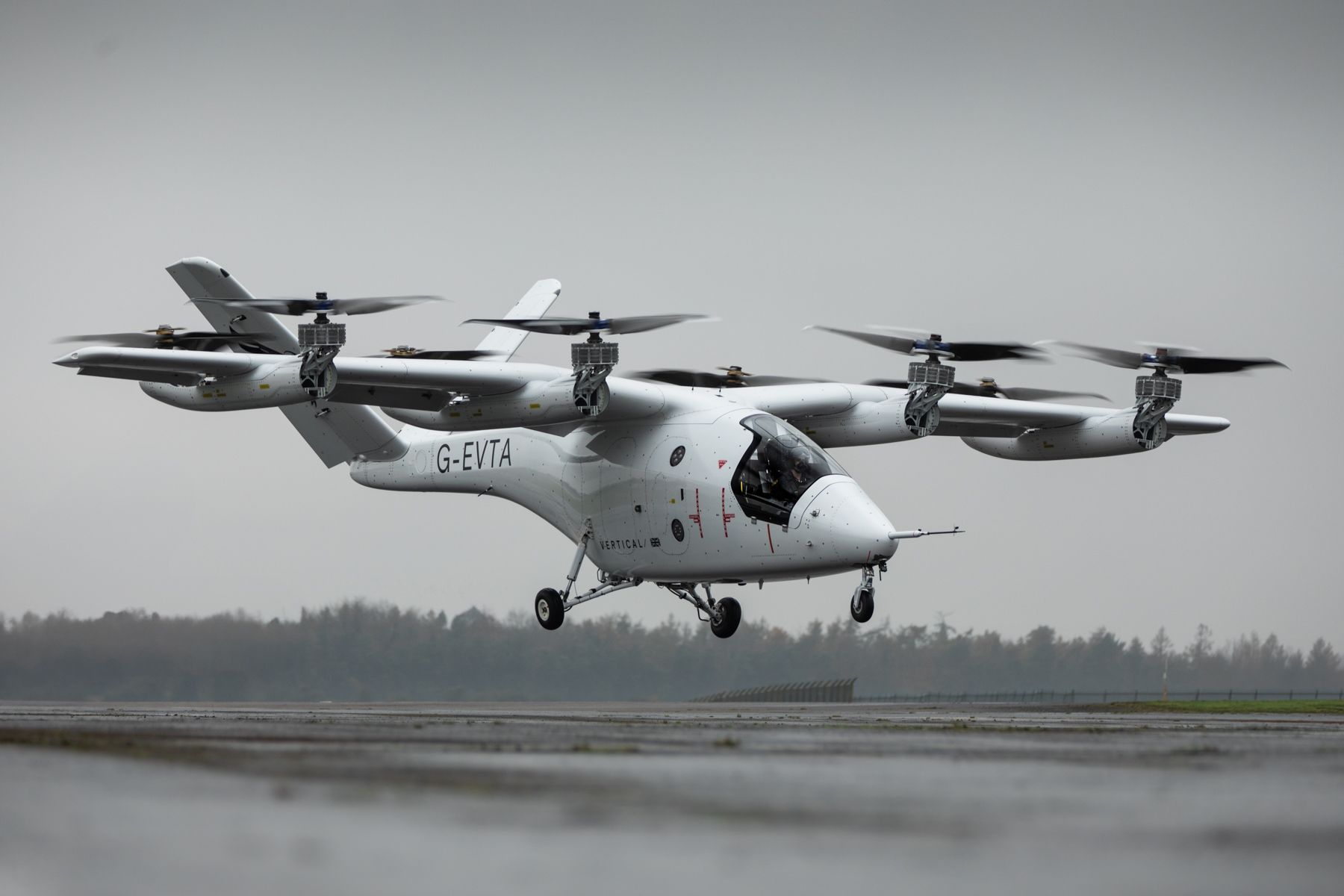Vertical Aerospace adopts universal fast-charging standard
March 31, 2025

Vertical Aerospace has joined many of its AAM industry peers in adopting the Combined Charging Standard (CCS), an interoperable, global-wide charging specification set to help facilitate a smooth operational adoption of its upcoming VX4 aircraft.
As endorsed by the General Aviation Manufacturers Association (GAMA), the selection of the universal, fast-charging system will provide OEMs, operators and infrastructure providers the clarity and consistency needed to facilitate easier adoption and integration of electric aircraft. Vertical’s adoption of CCS will offer immediate interoperability with all CCS chargers of this standard, a standardisation the eVTOL developer says will accelerate the roll-out of electric aviation.
Joining BETA Technologies, Archer Aviation and what Vertical terms “much of the industry” in adopting CCS, Vertical has also purchased two of BETA’s chargers for evaluation. “With certification efforts with five aviation authorities and customers across four continents, Vertical, together with BETA and Archer, choosing this standard means the industry has decided,” commented Vertical Aerospace CEO Stuart Simpson. He added that the VX4’s ability to integrate seamlessly into a shared network “reinforces [Vertical’s] commitment to delivering a scalable eVTOL ecosystem”.
In 2023, analysis by GAMA’s Electric Propulsion and Innovation Committee (EPIC) – a collaborative effort involving 13 OEMs and infrastructure providers (although notably, not Vertical) – revealed a consensus for the adoption of existing universal charging specifications. As well as benefitting vertiport facilities by economising on space, the investment risk for facilities installing the type-agnostic, interoperable electric chargers will also be lessened. “Having one standard simplifies and improves the customer experience,” explained GAMA, adding that “a common standard helps boost investment in the industry, and also encourages adoption of, and access to, publicly accessible charging networks”.
The CCS – which allows for direct current rapid charging of electric vehicles – has been in use since 2012 as an open international standard, supporting DC fast charging of up to 500kW. Crucially, it is the same standard in use for electric vehicles, potentially helping vertiport providers integrate ground-based mobility services. “When electric aircraft and electric ground vehicles from different manufacturers can share charging infrastructure, everyone gains,” concluded the EPIC study.
Over time, as maturing battery technology affords electric aircraft with greater capacity, the EPIC analysis also noted that a future Megawatt Charging Standard (MCS) may in future enable charging capacity beyond currently usable levels. Cautioning that electric aircraft charging demand will “significantly increase” as numbers of electric aircraft rise, as well as the energy each one may require, GAMA concluded that charging providers and site planners should consider these future needs in their planning.
A similar industry-wide future consensus on MCS could well benefit future advancements to Vertical’s aircraft, revealed in November 2024, with the VX4 to receive its first major upgrade in as little as two years post-certification. The additional of two additional passenger seats and extended range could be achieved “with minimal adjustments to the design of certification requirements,” explained Vertical, although an elevated MTOW would likely bring power requirements beyond the current capabilities of CCS.
















